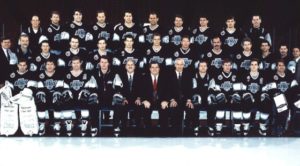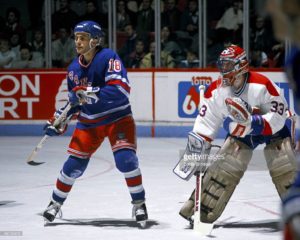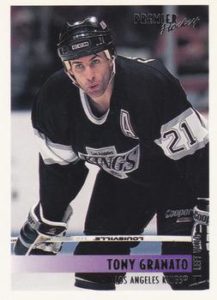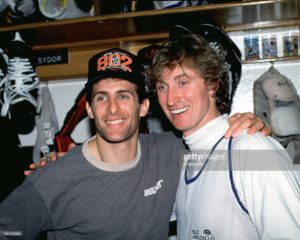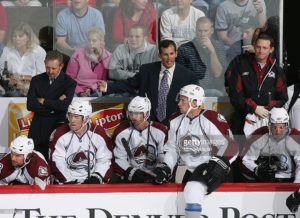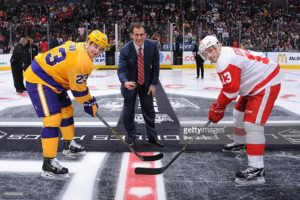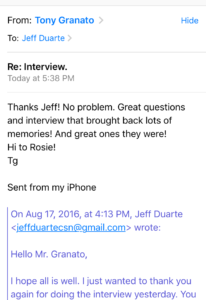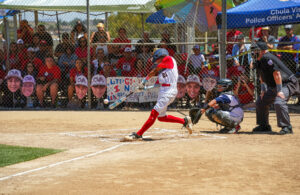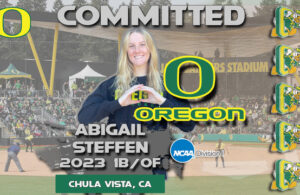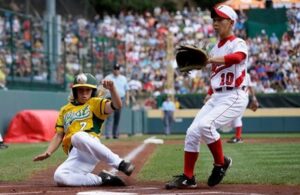Interview With Los Angeles King Legend Tony Granato
- Updated: August 19, 2016
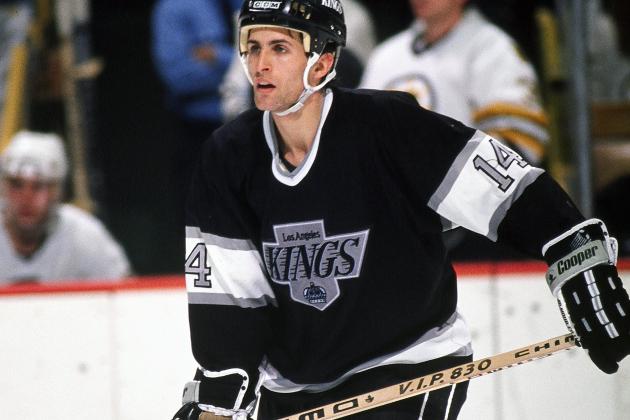
In my almost two years of working here for CaliSports News, I have been very blessed to experience everything that I have experienced in writing about hockey so far. From covering my beloved Los Angeles Kings, to covering such prestigious events as the Stanley Cup Final and the Hockey Hall of Fame induction ceremonies. If push came to shove and I had no choice but to pick one thing that I have to regularly do, out of so many wonderful things as my ultimate favorite thing to do for CaliSports, it would have to be every time I get a chance to personally interview someone. More specifically, a Los Angeles Kings’ player that I grew up following and idolizing as a child, that was a part of the 1993 team that made the Stanley Cup Final. Hands down that would be my pick every time. Never in my wildest imaginations would I envision myself being handed an opportunity to talk to Luc Robitaille, Kelly Hrudey or Barry Melrose and yet here I am, and I have. I can now proudly claim that I can add none other than Tony Granato to that list as well, a list that probably would have made my younger brain explode with excitement.
Born on July 25th, 1964 in Downers Grove, Illinois, Tony Granato was drafted by the New York Rangers in the 1982 entry draft and ended up having a very successful 13 year playing career in the NHL, especially during six plus years he spent as a Los Angeles King. Well known and remembered for his furious competitive spirit, and fearless playing style, Granato was also a very talented (and in my opinion heavily underrated) scorer that saw him having productive seasons as a regular 30 goal scorer and 60 point man, while becoming one of the greatest American born hockey players of his generation. He was also a clutch performer in the playoffs that seemed to always be around, or near an important goal that helped the Kings be one of the most competitive, feared and entertaining teams in the NHL during the early 1990s, helping the Kings reach the Stanley Cup Final for the first time in franchise history during the 1992-93 season after producing 6 goals (two of them being short-handed) and 17 points.
After having to cut his playing career short due to suffering various concussions, (which included undergoing brain surgery in 1996, in which he still returned to play in the NHL for another five seasons), Granato returned to the NHL as the head coach of the Colorado Avalanche in 2002, as well as an assistant coach in Colorado and in Pittsburgh. While coaching in “Steel town,” Granato helped the Penguins achieve top 10 finishes in both overall defense (10th) and penalty killing (5th) during the 2013-14 season. With an extremely busy schedule while working as the head coach of the University of Wisconsin Badgers, (where he played four years of NCAA hockey before playing in the NHL), and as a part of the coaching staff for the Detroit Red Wings, the 1988 Olympian was gracious and generous enough to squeeze me into his seriously packed schedule while in between meetings so we could talk about his playing career and his years as a Los Angeles King. As if I couldn’t idolize this man any more than I already did.
Growing up as a child, what was it about the sport of hockey that made you want to pursue it as a career?
Stan Mikita was, well him and Bobby Hull and Tony Esposito were my idols growing up. I was lucky enough to be in Chicago and exposed to hockey at an early age and Stan was a guy that I wanted to be like someday. I started skating at an outdoor pond across, it wasn’t even a pond, it was actually a field that the fire department used to freeze for the kids in Granville, Illinois and I used to go out there and try to be Stan Mikita every day.
After being drafted by the New York Rangers and playing a few years in Madison, Wisconsin and in Colorado, you made your NHL debut during the 1988-89 season, scoring 36 goals and 63 points. How was your experience in playing in New York City for the Ranger as a rookie?
Well I was lucky because I came in with Brian Leetch that year. Mike Richter, Pete Laviolette were there as well, so we were all together there from the Olympic team. Kevin Miller was also a Ranger draft pick and Corey Millen was also a Ranger draft pick, so there was a little bit of an easier transition when you’re going in with some people who you played with and know, rather than just jumping into a locker room and not knowing anybody or going through an experience without anybody alongside you. We had a ton of fun together as the veterans on that team were tremendously helpful in helping us get adjusted to life in the NHL. It was a wonderful place to play in. The fans, and playing in Madison Square Garden and wearing an original six jersey was something certainly that I will be very grateful for and cherish to have as a wonderful memory.
Along with Tomas Sandstrom, in 1990 you were traded to the Los Angeles Kings for Bernie Nicholls in what was at the time a very huge trade. What were your initial feelings when you learned you were being traded from New York and that you were going to Los Angeles?
It was somewhat of a shock, even though you know that being a professional athlete that it’s always a possibility of being traded, but I think the part that was so rewarding was where I was going, and again, I was going with a teammate in Tomas and we were going to play with Wayne Gretzky. So as much as I loved New York, I also understood the business part of it. [The Rangers] side of it was that they needed an elite scorer and to make a change. I was grateful to play a year and a half there, but I was also grateful and very lucky to go where I was headed. I remember getting the call, and [LA Kings’ owner] Bruce McNall got a hold of me before [Rangers’ GM] Neil Smith did and [LA Kings’ GM] Rogie Vachon did, and to get the original call from the owner of the Kings who was saying some complimentary things made it really easy and exciting about going to LA.
Your first playoff series as a King was in 1990 against the defending Stanley Cup Champion Calgary Flames. You had a big hand in leading the Kings to victory in that series, including an amazing breakaway overtime winning goal in game 3 …
… and in Mike Krushelnyski’s double overtime series winning floater of a goal that I’m sure Mike Vernon still has nightmares about to this day …
You remember the “floater” goal!
Of course!
That’s great because not many people remember that “floater” goal and they certainly don’t describe it as a “floater” goal so I like that! That was a dramatic, game ending clinching goal. I mean there’s a lot of great ones in the game of hockey, but to me that one should be ranked up there as one of the coolest goals and one of the most dramatic ones ever because it was a huge upset. The guy was laying on his belly from inside the circle. I think you only see a goal like that in twenty years. That one clinched the series and it was pretty spectacular!
I don’t know if calling it a “floater” goal is the best description but it seemed to be a curve ball that moved in slow motion. It was like a scene from “The Matrix” years before that was even a thing.
Oh it is. It’s a perfect description. I really like that. “Floater.” I’m going to use that.
In 1991 the Kings won the Smythe Division for the very first time and to this day, it is the only time the Kings have won a division title. You missed some time due to injuries but you still scored 30 goals and 64 points in 68 games. What was the vibe during that season of ’90-91, because that team really seemed to be finally clicking and having a strong shot at the Stanley Cup?
Well I think that anytime you are on a team with Gretzky, Luc Robitaille, Dave Taylor and Kelly Hrudey, you always think you have a chance to win and I think there was just a confidence about LA Kings hockey that was created by the excitement of having Wayne coming there, Luc having such a phenomenal start to his career and Dave being such a great leader. I think the rest of us just kind of felt like we were fillers of bits and pieces and parts that could help those guys build a championship type team. I think we did and we came close. It is really hard to win. You kind of find out and realize how difficult it is to win and we were close. We played like a championship team a lot and we certainly had some very entertaining teams that came close.
In those 1991 playoffs, for the third straight year in a row, and second since you were there, the Kings battled against the Edmonton Oilers. The Kings ended up losing in a very close and tight six game series, being eliminated in overtime in that game six. It was a heartbreaking loss, especially since the Kings were one of the top Stanley Cup contenders that year. Could you take us back to that ’91 series against Edmonton and in your opinion tell us what went wrong?
I don’t think anything went wrong. It was like you said, an even series that anybody could have won. I have been in a lot of series and had been eliminated a lot of times where you felt you had a better team, felt like you deserved better, but you know, the group on the other side was pretty darn good too and they were executing their game plan the same way you’re executing yours. Sometimes, you know, a bounce here and a bounce there, a play in game 1, 5, 6,7, doesn’t matter, could be the difference maker in a series, and those type of series and tight games. You know Edmonton … was that the year they went on to win?
Not in ’91, but the year before they did.
The year before. Yeah so we were playing the defending Stanley Cup Champions, so they knew how to win. I remember it being as physical and as tough of a grinding series that I ever played in. It was one series that could have gone either way.
As a Kings’ fan growing up a kid, my favorite line-up combination was you with Wayne Gretzky and Luc Robitaille. My second favorite was you, with Gretzky and Tomas Sandstrom. Did you have a personal favorite line-up combination that you were a part of and was there any reason why any of those high scoring lines didn’t have a cool nickname like the “Triple Crown” line, or the “Legion of Doom” did?
Cool names for the combo? I’m not sure about that one. I think when you’re playing with players like that, of course you want to be on the ice with Wayne. The second I was traded there, I was like, “Oh my gosh, we’re gonna be on the same team!” And then, “Oh my gosh, we’re gonna be on the same line!” So those were experiences in the game of hockey you cherish and you take advantage of and you appreciate, and I couldn’t be more thankful for those opportunities. He was as great of a player, the best ever or whatever you want to say it as, he certainly made it fun to be with and play with. It was easy for me. He made you feel like you belonged. He was an easy player to play with. If you look back and try to number or rank the situations of the game of hockey for me, to me playing with him has to be my favorite, or number one experience in the game.
The 1992-93 season was a very memorable one for the Los Angeles Kings for many reasons. One of them being that Gretzky had injured his back so severely, that it was feared that may have been career ending. Of course he did eventually come back but before he did, what was vibe with the team and your teammates in the locker room and on ice, with the possibility that Gretzky may never return to the team?
I remember in training camp we were either in Lake Tahoe or Camp Arrowhead when Bruce [McNall] called a meeting with a few of us veteran players to say, “Hey, I just heard back from the doctors and Wayne’s back is a major issue and it’s not something that we could just look past and think he was going to be fine, so we had to prepare for a life without him.” We started the season with a little bit of hope that he could someday heal up and be healthy, but it was a concern that he may never come back to play. I remember rallying around the fact that we had to pull together as a team. We had to handle this the right way instead of making excuses, saying that Wayne’s not here or whatever, whatever. We sucked it up and put together a heck of a run to start the season. Barry Melrose did a heck of a job in getting us to believe in ourselves and you know, I think we went three plus months without him and we came through it, and everyone was obviously relieved when we found out that we was going to return. But I remember that whole experience because there was doubt in everybody’s mind on whether or not he would be able to come back.
With Gretzky back, you guys then went all the way to the 1993 Stanley Cup Final. Looking back, what were your favorite experiences and memories of that epic playoff run?
Yeah, I think game 7 against Toronto was the funnest game that I had ever played in because it was your opportunity to get a chance to win the Cup. I felt that Wayne had played a lot of great games, and I had seen him make a lot of great plays, and I had seen him lead us in so many different ways, but in that game with how he played, there was never a doubt, because that’s what great players do. When they get questioned, because at that point people in the media had made some reference that he was slowing down and that his best days were behind him and whatever, well he put together his best days there and that’s what I remember. I think it was a major statement to anybody that would doubt a major superstar like that, and how he lifted us and carried us into the finals that year.
In the Stanley Cup Final, you guys took on the Montreal Canadiens and after a strong start, lost in five games. Could you take us back to that series and shed some light for us about what happened, and what went wrong? Did Marty McSorley’s illegal stick in game 2 really turn the tide in that whole series for Montreal?
Well, there was so many momentum changes in that series that the biggest thing was that it wasn’t a five game series. We lost three of them in overtime. It was another series like I said where you think you played well enough to think that in probably one of those three games you should have won. They had Patrick Roy, we had Kelly Hrudey. It was one heck of a battle in the nets. “Patty” made some big saves and in those three games. We had some quality, quality chances where we had the puck on the right guy’s stick and a lot of the times you would think, “Game over, we’re gonna win,” but Patty was able to ward off the opportunity. So I think, like we talked about with an earlier series, sometimes the best team that deserves to win, doesn’t always win. I thought our team played our hearts out. I thought in all of the games, with maybe the exception of game 5, we were in position to win and we just couldn’t get the play or the bounce or the break that would’ve turned the series the other way.
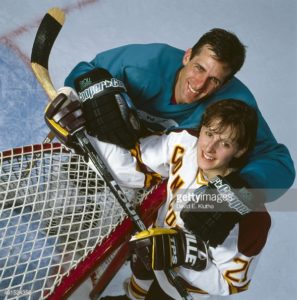
(Granato with his sister, Olympic Gold Medalist, World Champion and Hockey Hall of Famer Cammi Granato)
After playing in LA, you played with the San Jose Sharks under Darryl Sutter, who of course is the current head coach of the LA Kings. How was your experience with Sutter as your coach and did he influence you at all when you eventually became a coach yourself?
I think you know, as a player you try to learn from all your coaches and try to learn from their strengths and what they bring to the table and how they have success. His intensity was second to none. His competitiveness was second to none and certainly I think he grew as a coach, especially when he was with Calgary and he’s one of those guys that are smart enough to realize that the game changes and the players change and how you coach it changes. You know you learn from every experience. You learn what you do right and what you do wrong from all situations, and if you can improve and learn from those mistakes, you become better. A great tribute to what Darryl did and how he used his previous experiences to help him … so when he had the team and he had the players around him and the group to win with, he was able to motivate them in the right way. I am still amazed at the job he did in LA. He took a good team and turned them into a great team. They’ve obviously had a ton of success and they play a unique style that I think is different from a lot of teams. It is different really from any team that plays and how they’re built. I think every time the playoffs start, you think, “Okay, here they come again,” because they are a playoff team and it’s a great tribute to him and Dean Lombardi on how they were able to build that team.
How did you personally feel when the Kings finally won the Stanley Cup in 2012?
I felt great from the standpoint that I know all those fans that have lived with every moment of the Kings’ success and failures along the way were rewarded. Even though you’re not there, you still feel a little bit part of it and Luc Robitaille invited me there for a game, so I wasn’t playing as I was long gone by the time that team was built, but I was still part of the Kings’ organization and I felt a lot of pride of being a part of the Kings’ organization. I was excited to see them celebrate and like I said,the fans in LA, I don’t know how many times when I walked into the building, we were asked about the ’93 run and those ‘90’s teams, the “Gretzky” era teams and how much it meant to them as hockey fans. It certainly makes you feel good and it certainly puts a lot of memories and thoughts into your head of how wonderful of an experience that I did have there in LA.
I know you have a really busy schedule today and you need to head out of here to partake in a meeting, but thank you for making some time and squeezing me in today by doing this interview for CaliSports News. As a longtime LA Kings’ fan and a long time Tony Granato fan, this really meant alot to me, thank you so much!
No problem Jeff. It was my pleasure.
*Special thanks to Tony Granato, Ryan Cowley, Mario Hicks and Theresa Walsh Duarte for their help with this article.
** This article is dedicated to my big sister Rosie.
Stay with us at Calisportsnews.com as we will keep you up-to-date on all things Los Angeles Kings and the rest of the LA sports teams! All Cali, All the time!

